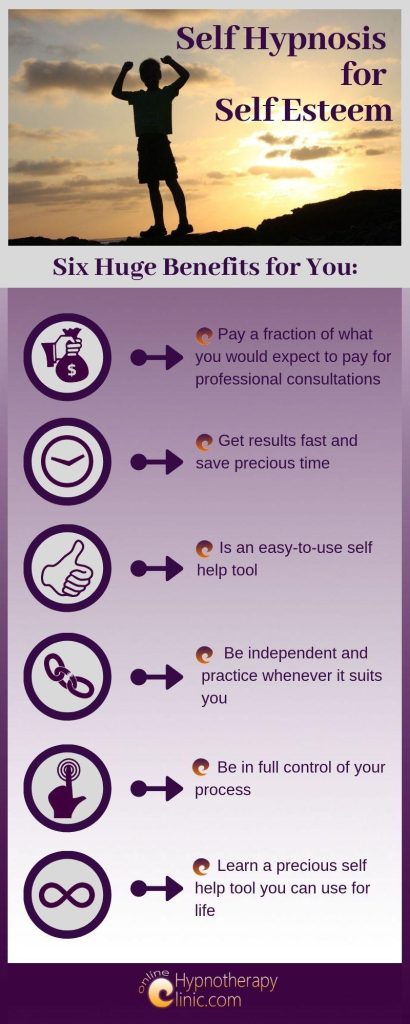Imagine a stage illuminated by soft, swirling lights, where a charismatic figure beckons a volunteer from the audience. As the spotlight shifts, the atmosphere thickens with intrigue, and in an instant, the volunteer’s eyes glaze over, their body rigid yet relaxed. The audience sits in rapt attention, questioning: Is this a performance, a mere trick, or something more profound? Hypnosis has long been shrouded in mystery and misconceptions, a blend of entertainment and psychological phenomenon that walks the line between consciousness and unconsciousness. But what if we peel back these layers to explore a compelling question: Are you truly aware when you’re hypnotized? In this article, we delve into the psychology of hypnosis, uncovering not only its mechanisms and effects but also the complex relationship between awareness and suggestibility that lies at its core. Join us on this journey to demystify a state that has fascinated humanity for centuries.

Understanding the Subtle Signs of Hypnosis
Hypnosis often operates on the fringes of our awareness, where the mind drifts into a state of focused relaxation. In this paradoxical state, individuals may remain unaware of the profound shifts taking place within their thoughts and behaviors. Subtle cues can indicate that someone is under hypnosis, even if they themselves might not recognize it. These can include:
- Altered Perception of Time: Minutes may feel like seconds, or vice versa.
- Enhanced Suggestibility: An increased responsiveness to suggestions that feel almost instinctual.
- Physical Unawareness: A person might lose track of small discomforts, such as tension in their body.
Interestingly, the experience can vary significantly from one individual to another. Understanding these signs requires an appreciation for the delicate interplay between consciousness and subconscious influence. The following table summarizes the different experiences associated with being in a hypnotic state:
| Experience | Description |
|---|---|
| Deep Relaxation | A profound state where stress and anxiety feel completely diminished. |
| Imagery Vividness | Heightened visualization that transforms thoughts into tangible images. |
| Memory Access | Uncovering forgotten memories, leading to insights or emotional clarity. |

Exploring the Boundaries of Consciousness and Control
Hypnosis often beckons us into a captivating labyrinth of the mind, where the lines blur between awareness and relinquished control. While the subject may appear to be in a deep trance, they are still straddling a delicate balance of consciousness. Fascinatingly, individuals can find themselves acutely aware of their surroundings even amidst a suggestion-laden environment. This intricate dance raises pressing questions about the nature of self-awareness during hypnosis. Here are some aspects to consider:
- Degrees of Awareness: Not everyone experiences hypnosis the same way; some may float gently into a state of relaxation, while others may maintain a heightened sense of awareness.
- Suggestibility: A key factor in hypnosis is how responsive a person is to suggestions, which does not necessarily imply total unconsciousness.
- Control Mechanism: Despite the perception of loss of control, many individuals report feeling very much in charge of their responses and decisions.
The phenomenon is a reflection of the brain’s complex workings, where different states of consciousness can coexist. To better illustrate this, consider the following table that categorizes various states experienced during hypnosis:
| State of Hypnosis | Awareness Level | Control Experience |
|---|---|---|
| Light Hypnosis | High | Moderate |
| Medium Hypnosis | Moderate | Somewhat High |
| Deep Hypnosis | Low | Variable |
This exploration reveals that while hypnosis can induce altered states of consciousness, a degree of self-awareness frequently remains intact. As our understanding of this phenomenon deepens, the intricate mechanics behind consciousness and control become even more compelling, inviting further inquiry into the human psyche.
Techniques to Enhance Self-Awareness During Hypnosis
Enhancing self-awareness during hypnosis can significantly improve the overall experience and its outcomes. One effective method is to practice mindfulness meditation prior to the hypnosis session. This technique encourages you to observe your thoughts and feelings without judgment, thereby creating a mental space that promotes deeper relaxation and introspection. Additionally, keeping a journal to record your thoughts and feelings before and after each hypnosis session can help identify patterns and triggers that influence your state of mind during hypnosis.
Another technique is to engage in self-talk during the hypnotherapy process. This involves reaffirming your intentions and reminding yourself that you are in control. Employing key phrases such as “I am aware of my surroundings” or “I embrace this experience” can enhance your clarity and consciousness. Visualizing a safe space in your mind where you can navigate the depths of your subconscious can also elevate your self-awareness. To further support these techniques, consider utilizing a simple table to visualize your progress:
| Technique | Purpose | Benefits |
|---|---|---|
| Mindfulness Meditation | Fosters observation of thoughts | Enhances relaxation, clarifies intent |
| Journaling | Tracks thoughts/emotions pre/post | Identifies patterns, boosts reflection |
| Self-Talk | Affirms control during hypnosis | Increases awareness, promotes focus |
| Visualization | Creates a safe mental space | Encourages exploration of the subconscious |
Navigating the Hypnotic Experience: Tips for Greater Insight
Understanding the hypnotic experience can significantly enhance your journey into this intriguing state of consciousness. To harness greater insights during hypnosis, consider the following strategies: be present in the moment, as this enhances receptivity; set clear intentions before each session, guiding the focus of your subconscious; and practice mindfulness regularly to strengthen your mental clarity. Engaging in activities that promote relaxation, such as deep breathing or meditation, can pave the way for a more profound hypnotic experience. Also, keep an open mind and be prepared to explore unexpected thoughts and feelings that might surface.
Additionally, maintaining a journal to document your hypnotic sessions can provide valuable insights. Use it to track your experiences, emotions, and any recurring themes you notice. Consider the following elements when recording your experiences:
| Date | Session Focus | Key Insights | Feelings/Emotions |
|---|---|---|---|
| October 5, 2023 | Stress Relief | Identified triggers | Relaxed, Calm |
| October 12, 2023 | Confidence Building | Visualized success | Empowered, Motivated |
| October 19, 2023 | Overcoming Fears | Uncovered fears | Scared, Liberated |
By embracing these tips and keeping track of your progress, you will gradually deepen your understanding of the hypnotic experience, unlocking pathways to greater self-awareness and personal growth.
Q&A
Q&A: Are You Aware When You’re Hypnotized?
Q1: What is hypnosis, and how does it work?
A1: Hypnosis is a focused state of consciousness often described as a trance. During this state, individuals may become more open to suggestions while retaining awareness of their surroundings. The process typically involves relaxation and heightened concentration, enabling a bridge between the conscious and subconscious mind.
Q2: Can someone remember what happens during hypnosis?
A2: Yes, most individuals can recall their experiences during hypnosis. While they may feel relaxed and somewhat detached from their usual thought patterns, much of what occurs remains accessible. However, the level of memory retention can vary between individuals and situations.
Q3: How aware are people of their surroundings while hypnotized?
A3: Awareness varies among individuals. Some might feel deeply immersed in the experience, while others can maintain a degree of consciousness about their surroundings. A common experience is a heightened focus on the suggestions being made, which might make other stimuli seem less significant.
Q4: Are there different depths of hypnosis?
A4: Absolutely! Hypnosis exists on a continuum, with varying depths ranging from light relaxation to deep trance states. In lighter states, individuals may remain more aware of their environment, while deeper states can result in diminished awareness of external stimuli but still retain an inner awareness of the hypnotic experience.
Q5: Can a person currently in hypnosis communicate?
A5: Yes, hypnotized individuals can often communicate, though their responses may be influenced by the suggestions given. They may need to navigate between their conscious thoughts and the relaxed state induced by hypnosis, which could affect the speed and clarity of their communication.
Q6: Is it possible to be forced into hypnosis?
A6: No one can be forced into hypnosis against their will. It requires voluntary participation and a willingness to enter the hypnotic state. If someone is resistant or refuses to engage, they simply will not be hypnotized.
Q7: What are common misconceptions about being hypnotized?
A7: One of the largest misconceptions is that hypnotized individuals lose control or are forced to reveal secrets. In reality, the subject retains autonomy and is unlikely to act against their morals or ethical beliefs. Hypnosis is more about guidance than manipulation.
Q8: Can hypnosis be beneficial even if a person is aware?
A8: Absolutely! Many people find therapy through hypnosis beneficial precisely because they maintain awareness. They can process suggestions actively while exploring deep-seated issues, making it a powerful tool for self-discovery and healing.
Q9: How can someone prepare for a hypnosis session?
A9: To maximize the benefits of hypnosis, individuals should approach the experience with an open mind. Prior to a session, it helps to relax, establish their objectives, and communicate openly with the hypnotist about any concerns or relationship preferences.
Q10: Is there a difference between stage hypnosis and therapeutic hypnosis?
A10: Yes, there is a significant distinction. Stage hypnosis is primarily entertainment and may emphasize dramatic displays of hypnosis. Therapeutic hypnosis is focused on personal growth and healing, often conducted in a professional, supportive environment. In both cases, awareness can vary, but therapeutic settings prioritize the individual’s mental well-being.
awareness during hypnosis is a nuanced experience, blending elements of focus, relaxation, and mental control. Individuals interested in exploring hypnosis should consider both its fascinating intricacies and its potential benefits.
In Retrospect
As we draw the curtains on our exploration of the fascinating realm of hypnosis, it’s essential to reflect on the duality of awareness and surrender that accompanies this state. Whether you’re an eager participant or a curious observer, understanding your own experience with hypnosis can unlock doors to deeper self-awareness and personal growth. The journey into the subconscious is a delicate dance between relaxation and alertness, where the lines of control and vulnerability often blur. Perhaps the most profound takeaway is the reminder that awareness exists in many forms. The next time you find yourself swept away by the soothing cadence of a hypnotic suggestion, take a moment to check in with yourself. Are you truly aware of your state, or has the rhythm of relaxation lulled you into a gentle surrender? Navigating the hypnotic landscape invites us all to engage more fully with our minds, not just in moments of trance, but in the tapestry of our everyday lives. So, as you venture forth, keep this question close: Are you truly aware when you’re hypnotized? With each exploration, you may uncover not just the answer, but a deeper understanding of the intricate interplay between consciousness and the mysteries that lie beyond.
Dr. John Renoldson is a distinguished professor of Clinical Research Hypnotherapy He holds a PhD in Clinical Psychology and specializes in hypnotherapy and scientific research to enhance therapeutic outcomes. Dr. Renoldson has authored numerous peer-reviewed articles on the efficacy of hypnosis in treating conditions.




